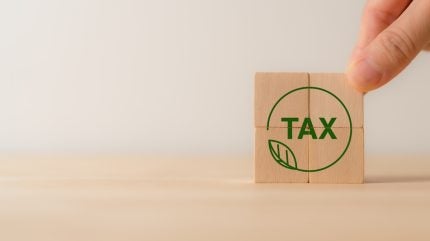
The Plastic Packaging Tax (PPT) is a tax applied to plastic packaging that does not meet certain recycling criteria.
However, some plastic packaging is exempt from this tax. Here’s an overview of the exemptions, including packaging that is excluded or does not count towards the tax threshold.
Exempt packaging categories
Certain types of plastic packaging are exempt from the Plastic Packaging Tax. These include:
- Packaging for medicinal products
Plastic packaging used for licensed human medicinal products is exempt. This includes immediate packaging that directly contacts the product, such as bottles or blister packs. This exemption ensures that packaging for medicine doesn’t incur unnecessary costs due to the tax. - Packaging set aside for non-packaging use
Plastic items that are permanently set aside for non-packaging purposes, like plastic film intended for use in agriculture, are also exempt. However, businesses must provide clear evidence and keep records showing that these products are not being used as packaging. - Transport packaging
Packaging used specifically for transporting goods into the UK, such as pallets, crates, and shipping containers, is excluded from the tax. This exemption ensures that packaging used for bulk shipments does not contribute to the tax burden. It also includes reusable packaging like mail sacks. - International store packaging
Packaging used for goods in international transport stores (such as those in ships, aircraft, or rail) is exempt, as long as it is not sold or used within the UK. These packaging items are needed to secure goods during transport but are not part of the sale or product use.
Packaging exempt from the 10-tonne threshold
For companies registering under the Plastic Packaging Tax, the total weight of plastic packaging manufactured or imported determines if they meet the 10-tonne threshold for registration. Some exempt packaging still counts towards this threshold:
- Medicinal packaging: Despite being exempt from tax, plastic packaging for human medicines counts when calculating the total weight for registration.
- Non-packaging use: Packaging permanently set aside for non-packaging purposes, like plastic film for industrial use, must also be included in the total weight calculation for registration.
Excluded from the tax
Some types of plastic packaging are entirely excluded from the Plastic Packaging Tax, meaning they do not need to be reported or counted towards the weight threshold:
- Packaging for long-term storage
Items designed for long-term storage, such as toolboxes or earbud cases, are exempt from the tax. This exemption applies when the packaging is intended to be reused for the storage of goods over an extended period. - Integral parts of goods
Packaging that is an integral part of the product, such as water filters or printer cartridges, is excluded. These components are essential for the use of the product and are discarded once the product is consumed or used. - Packaging for presentation
Some plastic packaging used solely for the display or presentation of goods, such as sales stands or display shelves, is excluded from the tax if it is intended to be reused for this purpose. However, packaging that is primarily for packaging goods (like food trays) still counts towards the tax.
The takeaway
The Plastic Packaging Tax aims to encourage the reduction of single-use plastic packaging, but many packaging types are exempt due to their specific purpose or usage.
It’s important for businesses to understand which packaging falls under these exemptions to ensure they comply with the tax requirements and avoid unnecessary registration.



